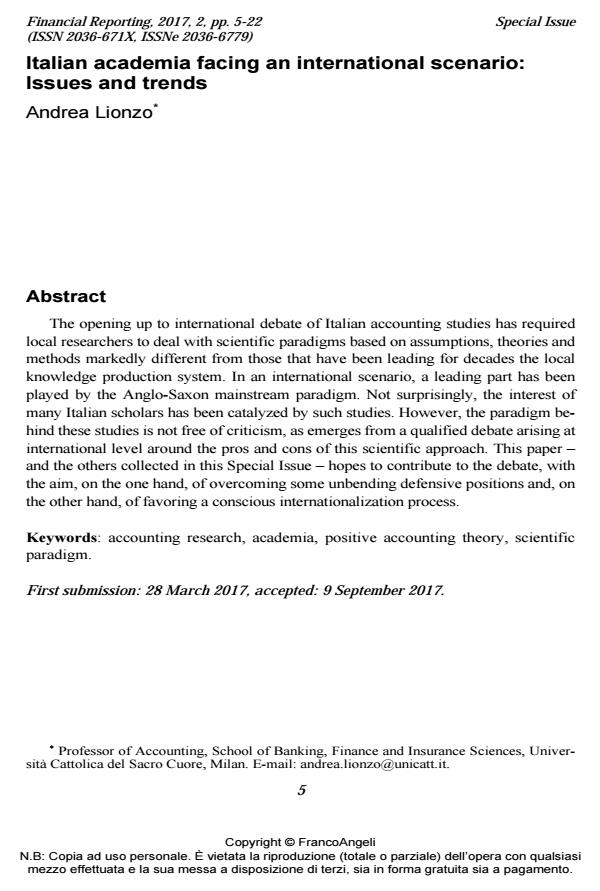Italian academia facing an international scenario: Issues and trends
Journal title FINANCIAL REPORTING
Author/s Andrea Lionzo
Publishing Year 2017 Issue 2017/2
Language English Pages 18 P. 5-22 File size 319 KB
DOI 10.3280/FR2017-002001
DOI is like a bar code for intellectual property: to have more infomation
click here
Below, you can see the article first page
If you want to buy this article in PDF format, you can do it, following the instructions to buy download credits

FrancoAngeli is member of Publishers International Linking Association, Inc (PILA), a not-for-profit association which run the CrossRef service enabling links to and from online scholarly content.
The opening up to international debate of Italian accounting studies has required local researchers to deal with scientific paradigms based on assumptions, theories and methods markedly different from those that have been leading for decades the local knowledge production system. In an international scenario, a leading part has been played by the Anglo-Saxon mainstream paradigm. Not surprisingly, the interest of many Italian scholars has been catalyzed by such studies. However, the paradigm behind these studies is not free of criticism, as emerges from a qualified debate arising at international level around the pros and cons of this scientific approach. This paper - and the others collected in this Special Issue - hopes to contribute to the debate, with the aim, on the one hand, of overcoming some unbending defensive positions and, on the other hand, of favoring a conscious internationalization process.
Keywords: Accounting research, academia, positive accounting theory, scientific paradigm.
- The governance of standard setting and the role of academia in Italian accounting regulation, 1942 to the present Alberto Quagli, Francesco Avallone, Paola Ramassa, Elisa Roncagliolo, in Accounting History /2019 pp.464
DOI: 10.1177/1032373219856715
Andrea Lionzo, Italian academia facing an international scenario: Issues and trends in "FINANCIAL REPORTING" 2/2017, pp 5-22, DOI: 10.3280/FR2017-002001